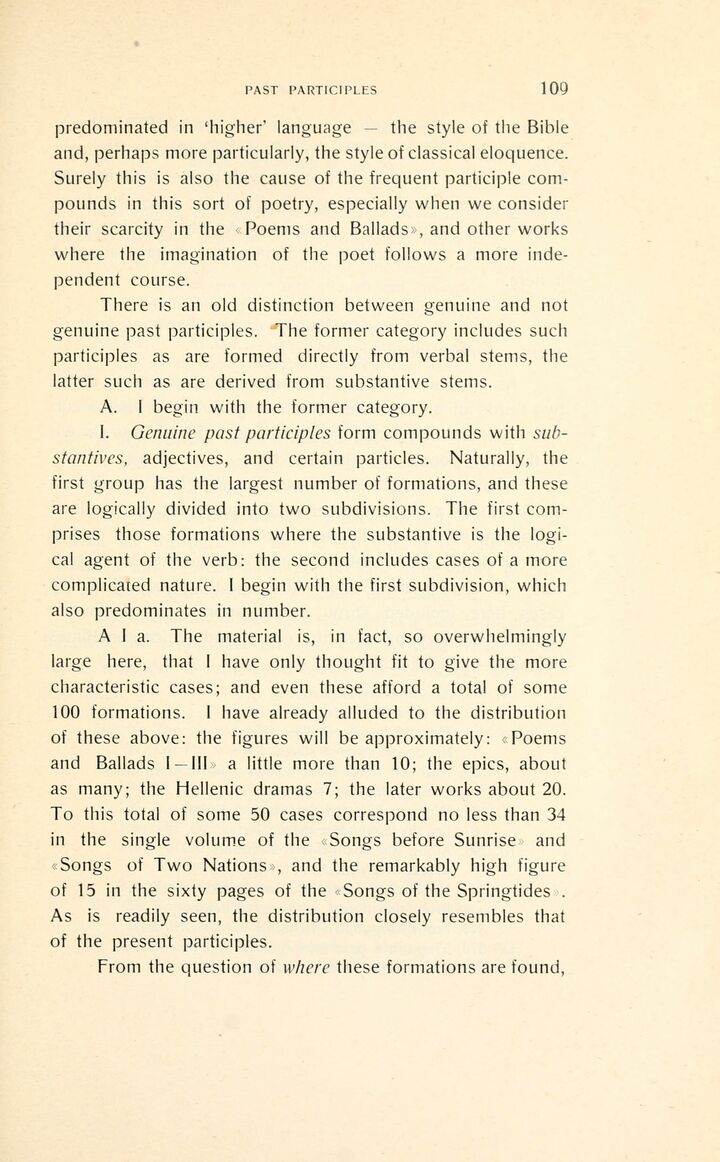
Full resolution (JPEG) - On this page / på denna sida - Sidor ...

<< prev. page << föreg. sida << >> nästa sida >> next page >>
Below is the raw OCR text
from the above scanned image.
Do you see an error? Proofread the page now!
Här nedan syns maskintolkade texten från faksimilbilden ovan.
Ser du något fel? Korrekturläs sidan nu!
This page has never been proofread. / Denna sida har aldrig korrekturlästs.
FALSE PAST PARTICIPLES
109
predominated in ’higher’ language — the style of the Bible
and, perhaps more particularly, the style of classical eloquence.
Surely this is also the cause of the frequent participle
compounds in this sort of poetry, especially when we consider
their scarcity in the < Poems and Ballads», and other works
where the imagination of the poet follows a more
independent course.
There is an old distinction between genuine and not
genuine past participles. The former category includes such
participles as are formed directly from verbal stems, the
latter such as are derived from substantive stems.
A. I begin with the former category.
1. Genuine past participles form compounds with
substantives, adjectives, and certain particles. Naturally, the
first group has the largest number of formations, and these
are logically divided into two subdivisions. The first
comprises those formations where the substantive is the
logical agent of the verb: the second includes cases of a more
complicated nature. I begin with the first subdivision, which
also predominates in number.
A I a. The material is, in fact, so overwhelmingly
large here, that I have only thought fit to give the more
characteristic cases; and even these afford a total of some
100 formations. I have already alluded to the distribution
of these above: the figures will be approximately: < Poems
and Ballads I —lll» a little more than 10; the epics, about
as many; the Hellenic dramas 7; the later works about 20.
To this total of some 50 cases correspond no less than 34
in the single volume of the <Songs before Sunrise and
«Songs of Two Nations», and the remarkably high figure
of 15 in the sixty pages of the < Songs of the Springtides .
As is readily seen, the distribution closely resembles that
of the present participles.
From the question of where these formations are found,
<< prev. page << föreg. sida << >> nästa sida >> next page >>